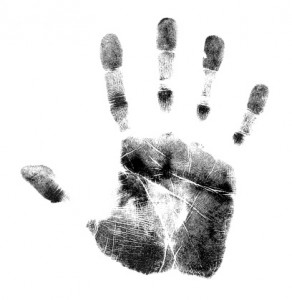permanent identity crisis

Most of us are in the midst of a permanent identity crisis…and thank goodness for that.
Excuse me?
Go with me on this for a moment.
But before I explain what is good about a permanent identity crisis, let’s look more closely at the idea itself.
Sociologists Peter Berger, Brigitte Berger and Hansfried Kellner write about it in their 1973 book The Homeless Mind, saying that:
“…modern man is afflicted with a permanent identity crisis, a condition conducive to considerable nervousness.”
And…
“Modern consciousness is…peculiarly aware, tense, ‘rationalizing.’ It follows that this reflectiveness pertains not only to the outside world but also to the subjectivity of the individual and especially to his identity. Not only the world but the self becomes an object of deliberate attention and sometimes anguished scrutiny.”
Who among us doesn’t regularly participate in “anguished scrutiny” of the self? One might argue that it has actually become a national pastime!
And by the way, even though this book was written in 1973, doesn’t it sound as if this quote could have come out of yesterday’s New York Times?
with freedom comes the burden of responsibility
For most of human history a critically important aspect of survival for the great majority of people was to follow the reigning dogma, accept your position/status in society and to avoid straying too far from the script written for you long before you were even born.
While this still remains true for far too many human beings across the globe, most of us living in advanced/industrial societies are ‘free to choose’ in most areas of life: who (or whether) to marry, where to live, what family arrangement to construct, how (and with whom) to have sex, what to stand for, what spiritual path to follow (if any), what God is (or is not), whether to alter your body with surgery, what to spend money on, which career to pursue (if any), who (and how) to date, what to endorse as “art,” how to parent (if at all)—and so on.
And to make matters even more complex, each of these aspects of our existence is saturated with what Barry Schwartz refers to as the “paradox of choice”—the reality that virtually every decision in modern life confronts us with an overwhelming and anxiety-inducing number of options.
For example, simply looking for therapy in NYC can send one into a panic attack due to the enormity of the field from which to choose. (See psychologytoday.com & goodtherapy.org—and have some Advil handy.)
being and becoming
Kindhearted adults with good intentions probably told you during childhood to ‘just be yourself.’ Sound advice, for sure. However, what those adults likely failed to tell you was, “Oh, and by the way—‘who you are’ is a never-ending work in progress.”
Just like your laptop, the software of your mind (your perceived identity, habitual thoughts and core beliefs) requires continuous upgrades for optimal functioning.
Whether we like it or not, we are in a continuous state of becoming.
celebrating your permanent identity crisis
Now, getting back to why I say that a permanent identity crisis is a good thing, here are two points that lead me to this perspective:
- For most people in the modern world, social roles and identities are far less proscribed than they were in earlier periods of human history. In other words, ‘who you become’ and ‘how you live’ are no longer dictated to you by your tribe in nearly the coercive and scary ways they once were. And this new reality did not fall out of the sky; it has been bestowed to us by our historical brethren. Thus, we can say that our permanent identity crises are an outgrowth—and therefore a priceless reminder—of hard won political and psychological freedoms that we should cherish and be grateful for.
- Permanent identity crises challenge us to learn and grow throughout life—to live more creatively and less rigidly in all areas of life. While this can be daunting at times, it also has the potential to bring out the best in us in the long run, individually and collectively. That is, if we are up for the challenge.
And just one last thought. When we feel lazy and/or frustrated about the ongoing effort that lifelong learning and growth requires, we’d do well to remember the wise words written by a young sage in 1964:
“He not busy being born is busy dying.”